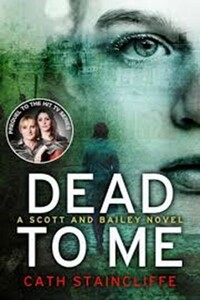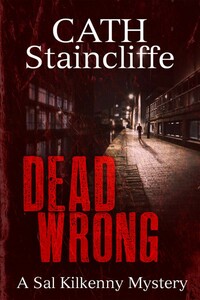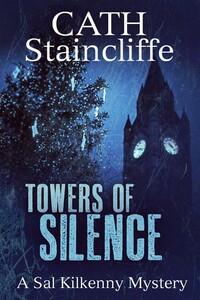Letters To My Daughter's Killer | страница 36
‘I know,’ Jack says. ‘I told them.’
‘He might have forced his way in as soon as she opened the door,’ I say.
We look at each other, Jack tightens his mouth and the dimple in his chin deepens.
Kay encourages me to talk about Lizzie. About her before all this. I’m not sure at first; it’s painful until I get lost in the stories. Gradually I see that it’s healthy to shift the focus away from Lizzie’s death to the rest of her life, all those twenty-nine years. To take her off the pedestal too: not some alabaster martyr, flawless and sublime, but a person who made mistakes and could be infuriating at times.
I tell Kay about the colic and the trials of teenage-hood, which I’m sure was normal enough but was a nightmare at the time. About how stubborn Lizzie could be even if she was in the wrong, and the raging rows she’d have particularly with Tony. And I explain how we came through all that. That the good times far outweighed the hard ones and I took such delight in her, her talents and her character and her generous spirit.
At sixteen she had an abortion after getting pregnant by some boy she had only dated for a month. Of course we’d have supported her whatever she chose to do, but I was relieved when she opted for a termination. She was so young, still a child herself in many ways. I was ready to go with her to the clinic, but she wanted to take her friend Rebecca instead. She was sad after the procedure, naturally – she sat beside me on the sofa and cried, and I rocked her in my arms – but she never regretted the choice.
CHAPTER ELEVEN
17 Brinks Avenue
Manchester
M19 6FX
Perhaps you are ill, mentally ill, I think, as I sit and open more cards and letters. Wouldn’t you have to be to stalk my daughter like you did? To come back and kill her? Though I know about the stereotypes. Most people with a mental illness are more likely to be the victims of violence than the instigators. Or to hurt themselves. The Daily Mail notion of the mad axeman is extremely rare. And these days it’s more likely to be a ceremonial sword.
At work, our doors are open to everyone, and some of the library users have health problems, mental or physical or both. In past times they’d have been locked up in asylums. I can’t imagine any of them attacking someone. Not Ruby, who is highly educated and speaks half a dozen languages and trembles like a butterfly, anxiety singing in every cell of her body. Or Giles, who lived with bipolar. ‘I’m manic-depressive,’ he announced when I first met him. ‘If I get on your nerves, just tell me to sod off. I do witter on sometimes.’ Giles wrote poetry, sheaves of it. He had romantic stories published in women’s magazines, and when he was well enough, he attended the creative writing group the WEA ran at the library. One summer’s night he lay down on the train tracks outside Levenshulme station and ended his life. He was a lovely man.




